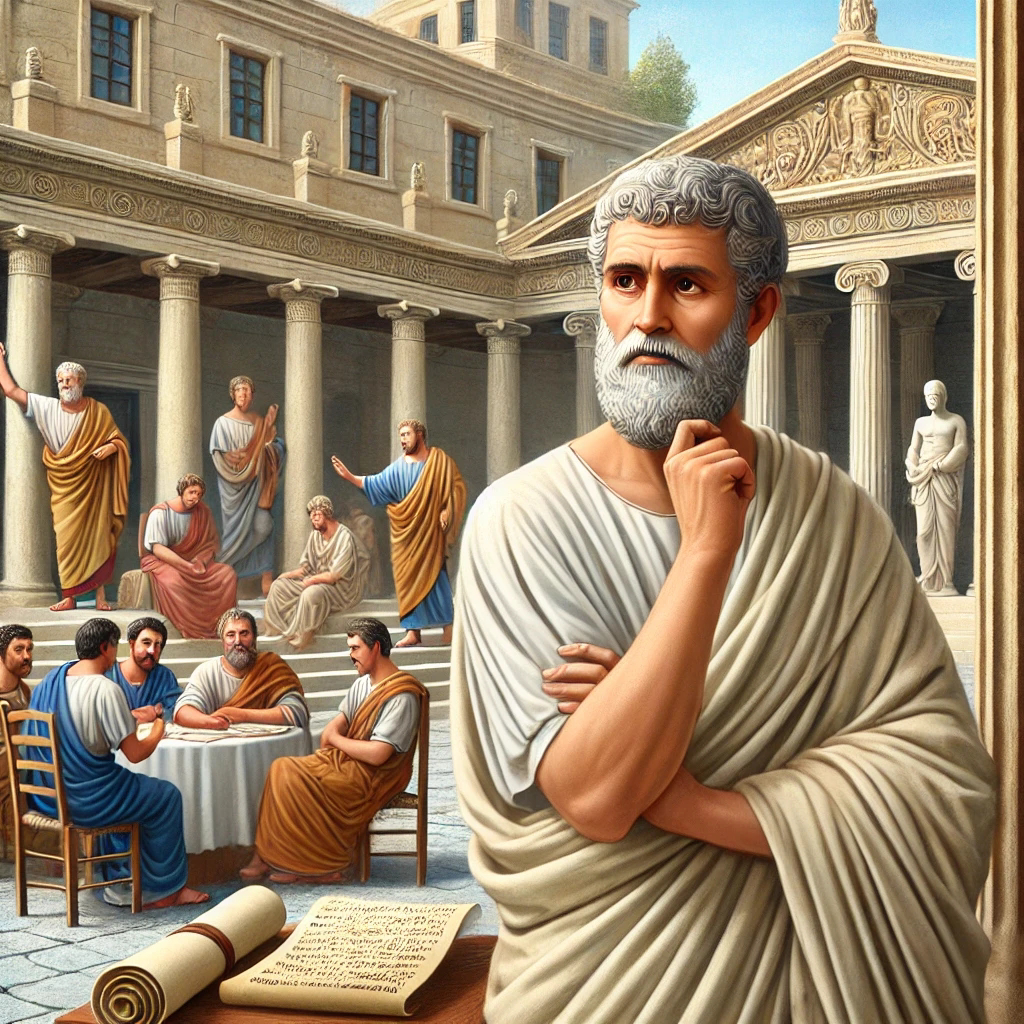Zeno of Cyprus remains an enigmatic figure in the annals of history. Though often overshadowed by other philosophers of antiquity, his contributions left an imprint on the intellectual landscape of the Hellenistic world. His name frequently gets confused with Zeno of Citium, the founder of Stoicism, but they were distinct individuals. While records on his life are scarce, what survives points to a thinker deeply engaged with philosophical inquiry. This article explores what we know about Zeno of Cyprus, his philosophical leanings, and his historical significance.
The Confusion Between Zeno of Cyprus and Zeno of Citium
One of the primary challenges in studying Zeno of Cyprus is differentiating him from the more famous Zeno of Citium. Both hailed from the island of Cyprus, adding to the confusion. Zeno of Citium founded Stoicism, one of the most influential schools of ancient philosophy. Meanwhile, Zeno of Cyprus appears to have been a lesser-known philosopher, possibly working in different intellectual circles. The lack of clear records makes it difficult to pinpoint his exact contributions.
Ancient sources offer little clarity on Zeno of Cyprus. References to his name appear sporadically in philosophical texts, but they often blend with those of Zeno of Citium. Some scholars speculate he may have been involved in rhetoric or ethics rather than metaphysical philosophy. Others suggest he might have contributed to the interpretation of Stoic or Cynic ideas. Without primary texts attributed to him, much of his work remains speculative.
The Intellectual Landscape of Cyprus
During the Hellenistic period, Cyprus was a melting pot of cultural and philosophical ideas. Greek thought had a strong presence, with influences from both Athens and Alexandria. Philosophers, poets, and scholars frequented the island, bringing with them diverse intellectual traditions. It was in this environment that Zeno of Cyprus likely developed his ideas. The intellectual currents of the time may have shaped his approach to philosophy.
Cyprus was not just a peripheral region but an active participant in Greek intellectual life. The island had a tradition of philosophical inquiry, particularly in ethics and political thought. If Zeno of Cyprus engaged with these subjects, he would have had access to a wide range of influences. The Stoics, Cynics, and Aristotelians all had followers across the Hellenistic world. Zeno of Cyprus may have synthesized these traditions in his own unique way.
Possible Philosophical Affiliations
While no direct texts from Zeno of Cyprus survive, some scholars have attempted to reconstruct his ideas. If he engaged in ethics, he might have drawn from the Stoic and Cynic traditions. The Cynics emphasized self-sufficiency and rejection of societal norms. The Stoics, on the other hand, focused on rational control of emotions and virtue as the highest good. Zeno of Cyprus may have contributed to discussions on these topics.
Another possibility is that he leaned toward rhetoric and practical philosophy. During the Hellenistic period, rhetoric was a crucial skill for public life. Philosophers often engaged in debates on how best to live and persuade others. If Zeno of Cyprus was involved in such discussions, his work could have influenced later rhetorical traditions. However, without primary sources, these connections remain speculative.
Influence on Later Thought
Despite the ambiguity surrounding his contributions, Zeno of Cyprus may have influenced later thinkers. His name appears in passing in various philosophical discussions, suggesting he was known in intellectual circles. Some scholars argue that even minor figures played a role in shaping broader philosophical movements. If he engaged with Stoicism, his ideas might have been absorbed into the teachings of later Stoics. Alternatively, if he worked in rhetoric, his influence could be traced in later oratorical traditions.
It is also possible that Zeno of Cyprus was more of a commentator than an original thinker. Many philosophers of the time engaged in interpreting and refining existing ideas. They did not necessarily establish new schools of thought but contributed to the development of existing ones. If Zeno of Cyprus played this role, his significance lies in his ability to synthesize and clarify ideas. His intellectual contributions, though indirect, would have added to the evolving discourse of the period.
The Limits of Historical Reconstruction
The scarcity of information about Zeno of Cyprus highlights the challenges of reconstructing ancient intellectual history. Many thinkers who were influential in their time have been lost to history due to the lack of preserved texts. The Hellenistic period produced a wealth of philosophical ideas, but only a fraction of them survive today. Much of what we know comes from later sources, often written centuries after the fact. This makes it difficult to determine the precise nature of Zeno’s work.
Without direct writings, scholars rely on secondary mentions and contextual analysis. This method is inherently speculative and subject to revision. Historical gaps mean that many figures, like Zeno of Cyprus, remain footnotes in philosophical history. Their true contributions may never be fully understood. However, even the smallest traces of their existence remind us of the richness of the ancient intellectual tradition.
Conclusion
Zeno of Cyprus remains a shadowy figure in philosophical history. While he is often confused with Zeno of Citium, his contributions appear to be distinct. He likely engaged in ethics, rhetoric, or philosophical commentary, though details remain scarce. The intellectual climate of Cyprus during his time suggests he was part of a vibrant exchange of ideas. Though largely forgotten, his presence in historical records hints at an influence that, while difficult to measure, was not insignificant.
Stay curious.




